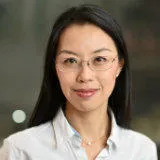On the other hand, the persistence of gendered marital norms, exemplified by the male breadwinner model, poses an obstacle for young men to move on to the next chapter of their lives.
Dr Soohyun Christine Lee
21 October 2024
Economic insecurity fuelling 'shift to the right' among young men
Economic insecurity is being used to drive a wedge between young men and women and is fuelling a surge in support for populist politicians in South Korea, a new study has found.

Despite young voters traditionally forming a large core of support for progressive centre-left parties, a period of “unprecedented volatility” in recent years has seen young men mobilised for populist right-wing candidates campaigning on ‘anti-feminist’ platforms.
This shift to the right among young men has been fuelled by the weaponisation of their feelings of economic insecurity mixed with anxiety around cultural norms of marriage and providing for a family.
The findings were revealed in a new paper authored by Dr Soohyun Christine Lee, from the Department of European and International Studies at King’s.
Dr Lee said: “In the 2022 presidential election, gender equality became a salient and divisive issue among young voters, driven by modern sexism among young men.
“My research found that this modern sexism has its roots in economic insecurity that prevents young men from fulfilling their desire for marriage and family. On the one hand, labour market dualisation and women’s advancement in education have heightened young men’s sense of fierce competition for insider employment, causing them to see their female peers as competitors for scarce economic resources and gender equality measures as ‘reverse discrimination against men’”.
In the 2022 presidential election, men aged 19-29 voted in overwhelming numbers for the conservative candidate, Yoon Suk-yeol, with 62.9 per cent coming out in support – a higher level than any other age band, including those aged 66 and older who are traditionally thought of as loyal conservative supporters. By contrast, just 26.1 per cent of women in the same age group voted for Yoon.
Further survey data has also shown a stark shift to the right by young men across a range of social issues. Those aged 19-34 showed the highest level of opposition to gender quotas, were the most disapproving of the Ministry for Gender Equality and Family, and were the most likely of any age group to say that compulsory military service was best avoided and that women should also be made to serve.
Dr Lee said that increasing scarcity and competition for insider employment among young people was among key drivers of the changing attitudes, as well as rising numbers classified as NEETs (Not in Employment, Education or Training).
Unemployment rates among young women, meanwhile, have been falling and more women now progress to higher education than men.
She added: “These developments contribute to a growing belief among young men that gender discrimination no longer exists in Korea. In addition, they drive a perception among young men of being threatened by their female peers, first, in the ‘race’ for admission to a prestigious university and, then, the competition for insider employment.”
Read more...
Dr Lee’s research has been published in the journal Social Politics. Read it here.

